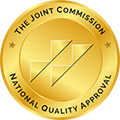What is crystal methamphetamine?
Crystal meth is a form of methamphetamine. As mentioned above, the regular methamphetamine can be prescribed as a Schedule II narcotic. However, most meth that is consumed in the United States is created illegally. Crystal meth is created by mixing various chemicals that are not normally meant to be ingested by the human body. Some of these chemicals include battery acid, drain cleaner, fuel, and ingredients in certain cold medicines. People addicted to crystal meth, many times referred to as “ice”, report getting addicted to the drug after the first time they used it because of the high concentration of the drug causing such a strong effect. The strong rush of meth is caused by dramatically increasing the release of dopamine and serotonin, similarly to the way cocaine acts on the brain. Unlike cocaine’s short term effects, meth users can stay high for as long as 12 hours on a single dose of the drug.
What are the negative short-term effects of abusing methamphetamine?
Some of the short-term negative effects of abusing methamphetamine are:
- Rapid heart rate
- Increased blood pressure
- Memory paranoia
- Irritability
- Delusions
- Increased violent behavior
The drug also does damage to the brain, heart, lungs, and nervous system. With methamphetamine use, there is also a risk of overdose which can cause hyperthermia and death.
What are the negative long-term effects of abusing methamphetamine?
Methamphetamine chemicals destroy the body both internally and externally. Smoking the drug also causes a great deal of damage to the mouth, teeth, and lungs. A person who abuses methamphetamines will likely have the appearance of sores on their face and bodies which are a result of the harsh chemicals and the person picking at their skin. Some of the most severe consequences from abusing methamphetamine are mental consequences. The toxicity of the chemicals used to produce meth can cause serious brain damage and changes to structure and function. Long-term use of the drug can even lead to permanent psychosis.
Methamphetamine Abuse
Why do people abuse methamphetamine?
People abuse a substance for the effect it produces for them. Abusers of methamphetamine find the “high” produced by the drug to be fulfilling in some way. Meth is considered one of the most addictive substances in the world. Some people continue to abuse methamphetamine after experiencing negative consequences from using the drug, because they fear experiencing withdrawal from the drug if they stop.
Crystal Meth Warning Signs
- Dilated pupils
- Accelerated speech
- Paranoia
- Bizarre unpredictable behavior
- Tremors
- Lack of sense of time
- Loss of appetite
- Heavy sweating
- Incoherent speech
- Irritability
- Skin abscesses
- Sleep deprivation
- Dehydration
- Decreased libido
Methamphetamine Addiction Symptoms
A person withdrawing from methamphetamine is not at risk for physical harm, as someone is when they are withdrawing from alcohol or benzodiazepines. However, the symptoms of withdrawal, specifically the mental effects, can still be severe. Some signs and symptoms of methamphetamine withdrawal are:
- A craving to use more
- Lack of energy
- Anxiety
- Lack of ,motivation
- Depression
- Sleeping for consecutive days
Methamphetamine withdrawal – How long does it last?
Withdrawal from methamphetamine addiction can last anywhere from a day to weeks. The length of time someone will experience withdrawal symptoms from methamphetamine depends on how long they were abusing the drug. The average amount of time someone experiences withdrawal symptoms from methamphetamine is about two weeks.
Methamphetamine Addiction Recovery?
Methamphetamine recovery is not only possible but can be permanent as well. In order to successfully recover from any addiction, all three parts of the disease – mind, body and spirit – must be treated effectively. Many recovered methamphetamine addicts found permanent success when entering a residential treatment facility and following with an intensive outpatient drug treatment program that has roots in 12 step immersion recovery.
What types of treatments are effective in treating meth addiction?
First and foremost, a detoxification process proportionate with the longevity of drug abuse is advised. Once physical stabilization has been achieved, it is recommended the addict enters into a treatment program of some kind – ideally, a stay at a residential treatment facility, followed by a step down to an outpatient program to be attended concurrent with residence at a sober living house. Throughout this process, the addict will receive individual therapy, learn effective recovery tools and build a reliable sober network for support. By progressing through the full continuum of care (detox, rehab, sober living), the addict receives the most effective level of treatment to combat methamphetamine addiction and prevail.
Can amino acid therapy for addiction help with meth withdrawal?
Historically, methamphetamine protocols for withdrawal have not been offered by any drug detoxes or treatment centers because these protocols have been non-existent. The Serenity Springs Amino Acid Therapy Program offers options for these powerful stimulates like methamphetamine, cocaine, bath salts, flakka, and speed. These hard stimulate drugs are some of the most damaging not only to the human brain, but also ravage America’s streets with violence and deadly behavior. When law enforcement responds to someone on these drugs they consider these responses to be the most violent, damaging, and deadly encounters. Amino acids work by repairing the neurotransmitters in the brain that have been damaged by chronic drug abuse. Years of neural damage can be effectively treated with just a week or two of structured amino acid therapy, which works to restore the biochemistry of the brain to a healthy state. Furthermore, amino acids may be helpful in preventing relapse by reducing cravings and healing the brain. You can learn more about the amino acid therapy offered by Serenity Springs by visiting our page.
References:
“Crystal Methamphetamine Fast Facts: Questions and Answers” National Drug Intelligence Center. N.d.
“Meth Abuse Signs, Symptoms & Effects” Delta Medical Center. Memphis. http://www.deltamedcenter.com/addiction/meth/. Accessed 4 Feb 2018.
“The Stages of the Meth ‘Experience’” Foundation for a Drug Free World. www.drugfreeworld.org/drugfacts/crystalmeth/. Accessed 30 Jan 2018.
“Prescription Stimulants” Drugfree.org. https://drugfree.org/drug/prescription-stimulants. Accessed 3 Feb 2018.







